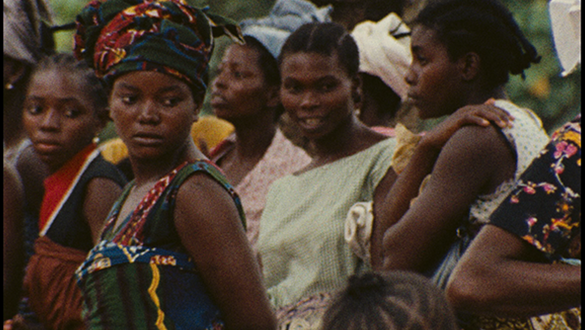
The film tells the story shortly before the Angolan armed struggle against Portuguese colonialism in the 1960s. After the arrest of her husband as a militant, Maria sets out from their village, with their child on her shoulders, to demand his release. From village to village, she unites with other men and women, but is also subject to the violence of the colonial regime. Maria's character and struggles also reflect the personal path of director Sarah Maldoror, who was the wife of the Angolan revolutionary and co-writer of the film Mário de Andrade. On the one hand, the realism of the film is intensified by the fact that the non-professional actors are real revolutionaries. On the other hand, Maldoror composes a poetic film, breaking the stereotypical representations of Africa.
Sarah Maldoror (1929-2020) was the first black woman to make anti-colonial cinema in Africa. Born in France, she had origins from Guadeloupe. She chose her pen name from Lautréamont’s poetic novel Les Chants de Maldoror. She started in theater and studied cinema in Moscow with Ousmane Sembène. Her husband Mario Coelho Pinto de Andrade was one the leaders of the Movement for the Liberation of Angola. Her films explore the national liberation struggles in Africa from a female perspective. In her words: "In the end, wars end when women are involved ‒ they do not have to hold bazookas, as long as they are present."





